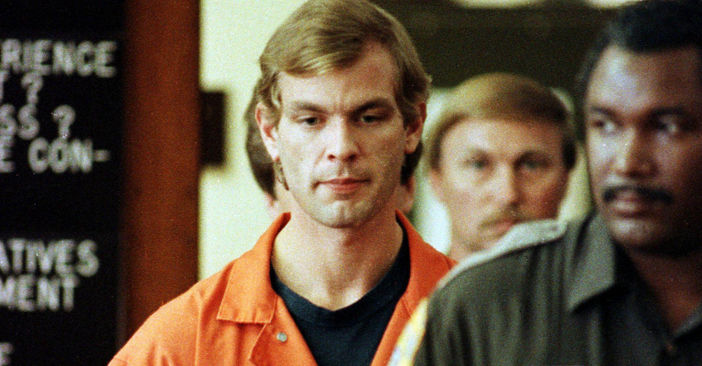
A Black woman who worked on Netflix’s ten-part Jeffrey Dahmer series says she was “treated horribly” on set.
Since the release of the streamer’s TV show about the notorious serial killer, Monster: The Jeffrey Dahmer Story, it has drawn criticism from both viewers and victims’ families.
Kim Alsup, a production assistant, has taken to Twitter to share her negative experience while working on set.
Alsup wrote that she was “treated horribly” while working behind the scenes on the series about the convicted serial killer who murdered and dismembered 17 men and boys, mostly of Black, Asian, and Latino descent, between 1978 and 1991.

Alsup, who has since made her Twitter account private, wrote to Entertainment Weekly:
“I worked on this project and I was 1 of 2 Black people on the crew and they kept calling me her name.”
“We both had braids. She was dark-skinned and 5’10. I’m 5’5. Working on this took everything I had as I was treated horribly. I look at the Black female lead differently now too,” she added.
In a new interview, the crew member also revealed to the Los Angeles Times that she has yet to watch the show because of the unpleasant memories she associates with it.
“I don’t want to have these PTSD types of situations,” she told the outlet. “The trailer itself gave me PTSD, which is why I ended up writing that tweet and I didn’t think that anybody was going to read.”
Alsup called the popular show, starring Evan Peters as the Millaukwee cannibal, “one of the worst shows” she’s ever worked on as a woman of colour. She also claimed that no mental health professionals were on set.
In addition, she revealed that other people on set were clueless and always called her by a different name, writing: “I was always being called someone else’s name, the only other Black girl who looked nothing like me, and I learned the names for 300 background extras.”
While Alsup said that the workplace conditions improved while filming the show’s sixth episode, which was written by Janet Mock and Paris Barclay, who are people of color, she said that her overall experience was “exhausting”.
While Alsup stated that working conditions improved while filming the show’s sixth episode, which was written by people of colour Janet Mock and Paris Barclay, she described her overall experience as “exhausting.”

Alsup is far from the only one who has criticised the show. Rita Isbell, the sister of one of Dahmer’s victims, Errol Lindsey, wrote in an essay for Insider that she was “never contacted about the show,” despite the fact that they recreated her emotional 1992 victim impact statement to Dahmer in an episode.
“I was never contacted about the show. I feel like Netflix should’ve asked if we mind or how we felt about making it,” she said.
“When I saw some of the show, it bothered me, especially when I saw myself – when I saw my name come across the screen and this lady saying verbatim exactly what I said.
“If I didn’t know any better, I would’ve thought it was me. Her hair was like mine, she had on the same clothes,” she said, adding that it “brought back all the emotions she was feeling back then” and forced her to “relive it all over again”.
Rita said it would have been more forgivable if they “gave some of the money to the victims’ children,” not necessarily her because she’s “comfortable,” but the victim’s children and grandchildren.
“If the show benefited them in some way, it wouldn’t feel so harsh and careless. It’s sad that they’re just making money off of this tragedy. That’s just greed,” she explained.
Featured image credit: Barry King / Alamy
Featured image credit: PA Images / Alamy















